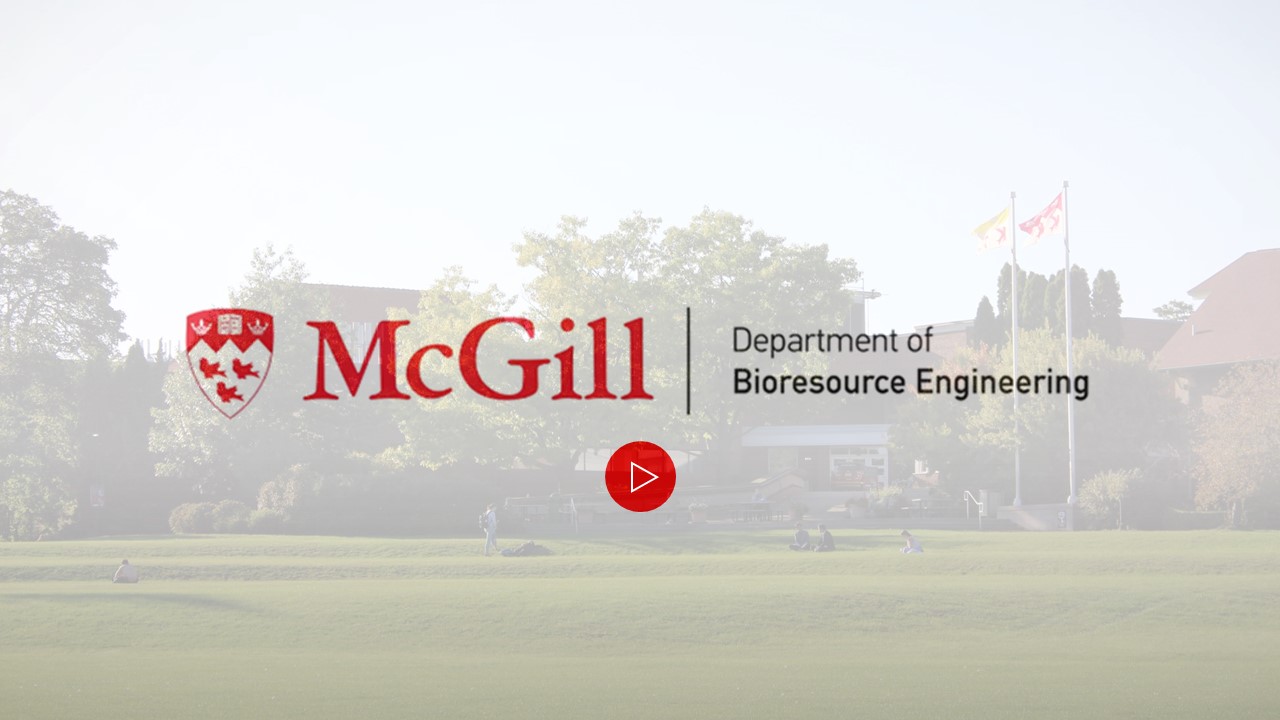Welcome! Bienvenue!
The Department of Bioresource Engineering is part of the Faculty of Agricultural and Environmental Sciences of McGill University. We offer B.Eng., M.Sc., M.Sc.A., and Ph.D. degree programs. Our B.Eng. (Bioresource) curriculum is provided in collaboration with other departments in our faculty as well as across the Faculty of Engineering. Graduates of this program qualify to apply to register as professional engineers (P.Eng.) in any province of Canada and some other jurisdictions. In addition, the available Professional Agrology Option qualifies graduates to apply for registration to the Ordre des Agronomes du Québec. The following video is a brief introduction to our program:
What is Bioresource Engineering?
Bioresource Engineering is an interdisciplinary program that integrates engineering, design, and the biological sciences. It is a unique profession that applies engineering principles to the enhancement and sustainability of the world’s natural resources. Bioresource engineers seek solutions to problems that involve plants, animals, and the environment.
Bioresource Engineering includes the design, construction, operation, maintenance, remediation, and upgrading of systems that contain biological components. This also includes the design of many of the technological constructions that are part of such systems. Thus, Bioresource Engineering includes quite a few subdisciplines, which are linked because of their biological orientation.
B3E: Bioengineering, Biomedical Engineering, and Bioresource Engineering at McGill University
![]() B3E@McGill : opportunities for interdisciplinary education, training, and research.
B3E@McGill : opportunities for interdisciplinary education, training, and research.
Equity, Diversity, and Inclusion (EDI)
The Bioresource Engineering Department strives to incorporate best practices in EDI into its teaching, research, and outreach. The Department actively institutes EDI in its hiring practices and through interactions with the student body. More information about EDI in the department, and announcements about seminars and events can be found here.

